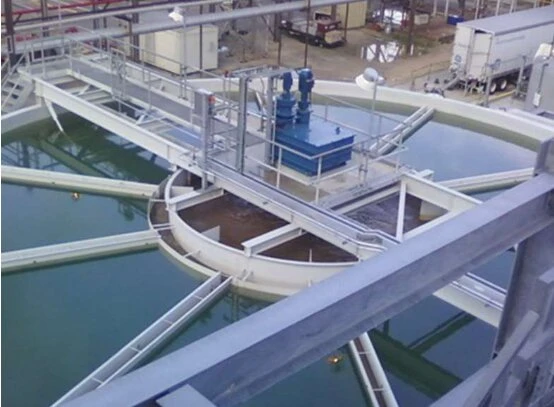
-
 Afrikaans
Afrikaans -
 Albanian
Albanian -
 Amharic
Amharic -
 Arabic
Arabic -
 Armenian
Armenian -
 Azerbaijani
Azerbaijani -
 Basque
Basque -
 Belarusian
Belarusian -
 Bengali
Bengali -
 Bosnian
Bosnian -
 Bulgarian
Bulgarian -
 Catalan
Catalan -
 Cebuano
Cebuano -
 China
China -
 China (Taiwan)
China (Taiwan) -
 Corsican
Corsican -
 Croatian
Croatian -
 Czech
Czech -
 Danish
Danish -
 Dutch
Dutch -
 English
English -
 Esperanto
Esperanto -
 Estonian
Estonian -
 Finnish
Finnish -
 French
French -
 Frisian
Frisian -
 Galician
Galician -
 Georgian
Georgian -
 German
German -
 Greek
Greek -
 Gujarati
Gujarati -
 Haitian Creole
Haitian Creole -
 hausa
hausa -
 hawaiian
hawaiian -
 Hebrew
Hebrew -
 Hindi
Hindi -
 Miao
Miao -
 Hungarian
Hungarian -
 Icelandic
Icelandic -
 igbo
igbo -
 Indonesian
Indonesian -
 irish
irish -
 Italian
Italian -
 Japanese
Japanese -
 Javanese
Javanese -
 Kannada
Kannada -
 kazakh
kazakh -
 Khmer
Khmer -
 Rwandese
Rwandese -
 Korean
Korean -
 Kurdish
Kurdish -
 Kyrgyz
Kyrgyz -
 Lao
Lao -
 Latin
Latin -
 Latvian
Latvian -
 Lithuanian
Lithuanian -
 Luxembourgish
Luxembourgish -
 Macedonian
Macedonian -
 Malgashi
Malgashi -
 Malay
Malay -
 Malayalam
Malayalam -
 Maltese
Maltese -
 Maori
Maori -
 Marathi
Marathi -
 Mongolian
Mongolian -
 Myanmar
Myanmar -
 Nepali
Nepali -
 Norwegian
Norwegian -
 Norwegian
Norwegian -
 Occitan
Occitan -
 Pashto
Pashto -
 Persian
Persian -
 Polish
Polish -
 Portuguese
Portuguese -
 Punjabi
Punjabi -
 Romanian
Romanian -
 Russian
Russian -
 Samoan
Samoan -
 Scottish Gaelic
Scottish Gaelic -
 Serbian
Serbian -
 Sesotho
Sesotho -
 Shona
Shona -
 Sindhi
Sindhi -
 Sinhala
Sinhala -
 Slovak
Slovak -
 Slovenian
Slovenian -
 Somali
Somali -
 Spanish
Spanish -
 Sundanese
Sundanese -
 Swahili
Swahili -
 Swedish
Swedish -
 Tagalog
Tagalog -
 Tajik
Tajik -
 Tamil
Tamil -
 Tatar
Tatar -
 Telugu
Telugu -
 Thai
Thai -
 Turkish
Turkish -
 Turkmen
Turkmen -
 Ukrainian
Ukrainian -
 Urdu
Urdu -
 Uighur
Uighur -
 Uzbek
Uzbek -
 Vietnamese
Vietnamese -
 Welsh
Welsh -
 Bantu
Bantu -
 Yiddish
Yiddish -
 Yoruba
Yoruba -
 Zulu
Zulu
fiberglass fitting
The Versatility of Fiberglass Fittings in Modern Applications
Fiberglass fittings have become an essential component in various industries, thanks to their remarkable properties and versatility. From construction to plumbing, and even in aerospace, fiberglass fittings are increasingly replacing traditional materials due to their superior performance, longevity, and cost-effectiveness. This article delves into the characteristics, advantages, and applications of fiberglass fittings, showcasing why they are a preferred choice in many scenarios.
What is Fiberglass?
Fiberglass, or glass-reinforced plastic (GRP), is a composite material made from a polymer matrix reinforced by glass fibers. This combination yields a material that is light yet incredibly strong, exhibiting outstanding resistance to heat, corrosion, and mechanical stress. The manufacturing process typically involves embedding glass fibers into a resin matrix, which can be molded into various shapes and forms, including pipes, tanks, and fittings.
Advantages of Fiberglass Fittings
1. Corrosion Resistance One of the most significant benefits of fiberglass fittings is their resistance to corrosion. Unlike metals, which may rust or degrade over time when exposed to harsh chemicals or moisture, fiberglass can withstand a wide range of corrosive substances. This property makes it an ideal choice for applications in chemical processing plants, wastewater treatment facilities, and marine environments.
2. Lightweight Fiberglass fittings are considerably lighter than metal or concrete alternatives. This lightweight characteristic simplifies transportation and installation, reducing labor costs and time. It also alleviates the structural load on buildings and supports, allowing for more efficient design solutions.
3. Durability and Longevity Fiberglass fittings are designed to endure the rigors of their environment. They are resistant to UV radiation, temperature fluctuations, and impact, giving them an impressive lifespan compared to traditional materials. This durability translates to lower maintenance costs and fewer replacements over time, making fiberglass a smart investment.
4. Insulation Properties Fiberglass fittings possess excellent thermal insulation properties. They minimize heat transfer, making them suitable for applications that require temperature control, such as in HVAC systems or in the transportation of temperature-sensitive fluids.
fiberglass fitting

5. Customization The manufacturing process enables fiberglass fittings to be customized to meet specific needs. They can be produced in various sizes, shapes, and configurations, allowing for tailor-made solutions for different projects.
Applications of Fiberglass Fittings
1. Plumbing and Piping Systems Fiberglass fittings are widely used in plumbing and piping applications where corrosion resistance is critical. They are particularly useful in the chemical and oil industries, where pipelines are often exposed to harsh substances.
2. Construction and Infrastructure In construction, fiberglass fittings are used for various components, such as reinforcements, brackets, and connectors. Their strength and lightweight nature make them suitable for modern building techniques, including modular construction.
3. Aerospace and Automotive In aerospace engineering, fiberglass fittings contribute to the lightweight construction of aircraft, helping to enhance fuel efficiency. Similarly, in the automotive industry, they are used in components that require strength without adding excessive weight to vehicles.
4. Marine Applications Given their resistance to saltwater and corrosion, fiberglass fittings are commonly used in the marine sector for boat construction, piping systems, and various other applications that demand resilience against harsh marine environments.
5. Water and Wastewater Management Fiberglass fittings are vital in water treatment plants and sewage systems. Their ability to withstand corrosive substances makes them ideal for transporting treated and untreated water without the risk of degradation.
Conclusion
The rise of fiberglass fittings in various industries underscores the material's immense advantages over traditional options. With their unparalleled corrosion resistance, lightweight nature, durability, and customization capabilities, fiberglass fittings are ushering in a new era of efficient, sustainable, and effective solutions. As industries continue to seek innovative materials that meet modern demands, fiberglass fittings will undoubtedly play a crucial role in shaping the future of construction, plumbing, transportation, and beyond. Their versatility and reliability make them a clear choice for a multitude of applications, reinforcing their position as a material of choice in today's market.









